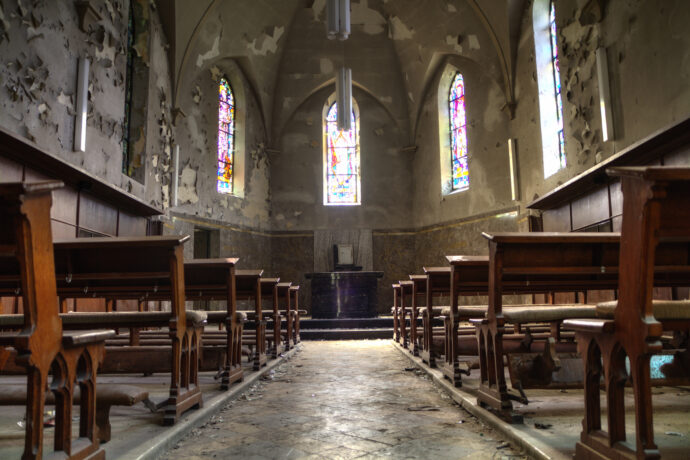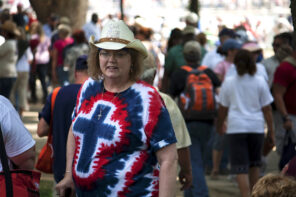Having spent most of the last two years in conversation with Nones, seekers, doubters, and those who feel culturally bound to a religious tradition even while they don’t participate in one, the latest Pew survey results come as no surprise. It’s been clear for years that Mainline Protestant Christianity in America is on the decline.
That Catholicism also is in precipitous decline—and the news that the religiously unaffiliated now outnumber Catholics—is perhaps only surprising to those who haven’t attended a Catholic church recently.
Today, 13 percent of American adults are former Catholics. For every person who joins the Catholic church, six Catholics leave. “No other group,” according to Pew, “has such a lopsided ratio of losses to gains.”
When it comes to the topic of religious switching and the decline of converts to Catholicism, in spite of the popularity of Pope Francis, the church has work to do in terms of how it meets people where they arrive. The seeker who arrives at a Catholic church has very few options for being introduced to the faith.
After Vatican II, the Church designed an introductory course titled “The Rite of Christian Initiation for Adults,” more commonly known as RCIA. The official handbook for RCIA focuses on what Paolo Friere would call the “banking concept” of education: pouring a lot of information about history and theology into the seeker, rather than providing people a space to ask questions, air doubts, and puzzle out what faith might mean in their everyday lives.
Among many other obvious reasons, including the sex abuse scandal and a lack of parity for women and LGBTQ people, this may be why the number of converts to Catholicism in America has shrunk so dramatically. The church, in many ways, has failed at being a place of encounter. In terms of its failure of retention, the church also has failed at asking itself some hard questions about what kind of religion it is modeling.
Rather than placing mercy and compassion at the forefront of its message, the American Catholic church in particular has become caught up in the culture wars, with a relentless and alienating focus on antiquated notions of sexuality and upholding “traditional marriage” that are deeply unappealing to Millennials and Gen Xers in particular.
An interesting point that many of the people I interviewed for my forthcoming book made is that they see themselves as “picky”— because they may choose and combine bits and pieces from many religious traditions but adhere strictly to no single one, they are practicing a new kind of religion, one which we might loosely call “DIY.”
But is pickiness really the reason why Christianity—and Catholicism in particular—is on the decline in America?
Perhaps. But pickiness also may indicate a level of discernment and thoughtfulness about what is non-negotiable in people’s search for a way of believing. The identity of being a seeker is no longer one that might result in a lifelong adherence to a single faith.
Younger generations of Americans are used to being able to customize and curate many things. Additionally, the shifts in the ways we live out careers, marriage, and family means that we are becoming more adaptable, more accustomed to constant change, and more able to see religion as one piece of a complex puzzle of life rather than a centralizing force.
Religion for many is becoming a lived and constantly shifting experience rather than a series of handed-down gestures and prayers.
The new Pew survey doesn’t tell us why that’s occurring, only that it is occurring, and that it is unstoppable. If we want to find out why, numbers and statistics are only a start. The next step will getting to know the religiously unaffiliated as individual people.





